
OrangeHRM is a comprehensive Human Resource Management (HRM) System that captures all the essential functionalities required for any enterprise. The software is built to support teams of any size, including start-ups, SMEs as well as Large Multinational organizations. In this step by step guide I will show you how to install OrangeHRM on your Synology NAS using Docker and Portainer.
This guide works perfectly with the latest OrangeHRM v5.8 release.
STEP 1
Please Support My work by Making a Donation.
STEP 2
Install Portainer using my step by step guide. If you already have Portainer installed on your Synology NAS, skip this STEP. Attention: Make sure you have installed the latest Portainer version.
STEP 3
Go to File Station and open the docker folder. Inside the docker folder, create one new folder and name it orangehrm. Follow the instructions in the image below.
Note: Be careful to enter only lowercase, not uppercase letters.
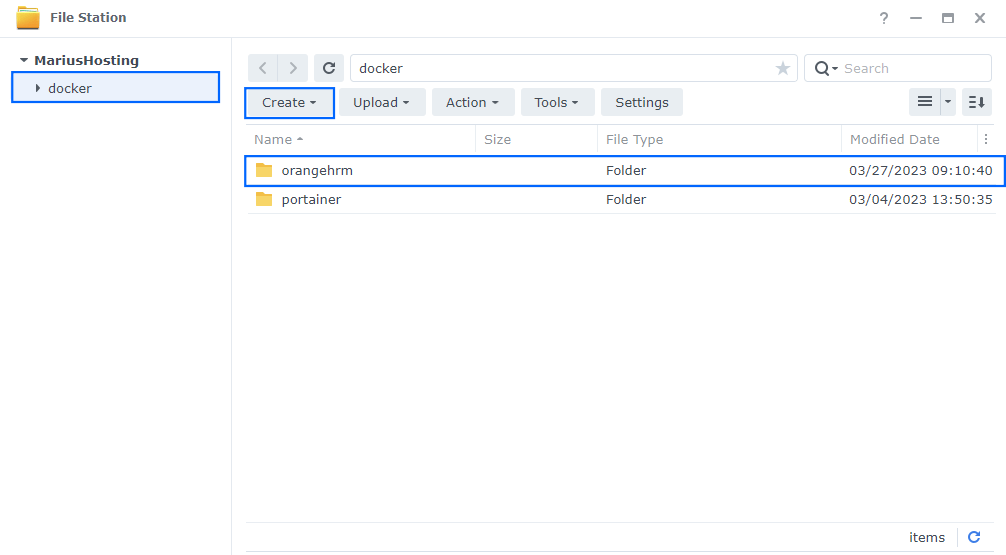
STEP 4
Now create two new folders inside the orangehrm folder that you created at STEP 3 and name them data and db. Follow the instructions in the image below.
Note: Be careful to enter only lowercase, not uppercase letters.
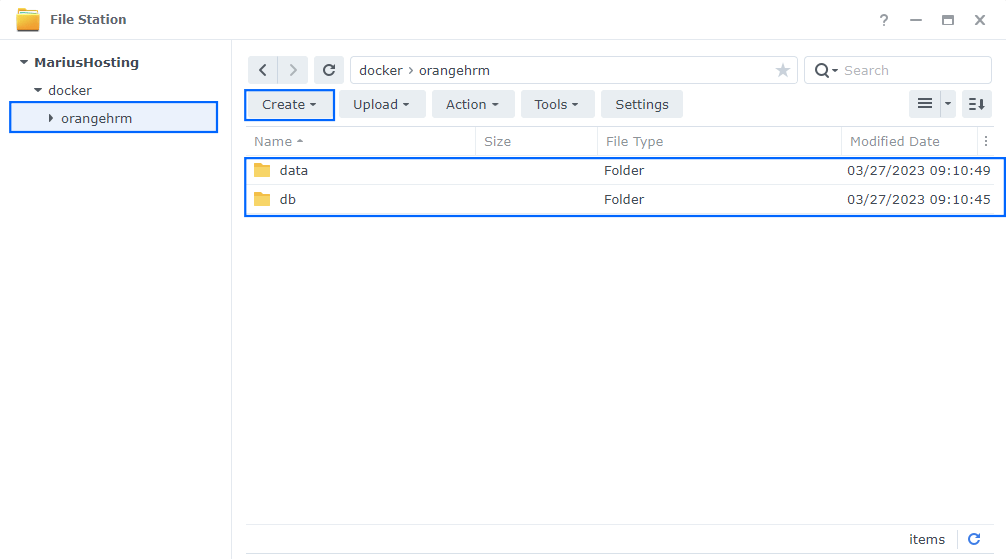
STEP 5
Log into Portainer using your username and password. On the left sidebar in Portainer, click on Home then Live connect. Follow the instructions in the image below.

On the left sidebar in Portainer, click on Stacks then + Add stack. Follow the instructions in the image below.

STEP 6
In the Name field type in orangehrm. Follow the instructions in the image below.
services:
db:
image: mariadb:11.8-noble #LTS Long Time Support Until October 15, 2033.
container_name: OrangeHRM-DB
hostname: orangehrm-db
security_opt:
- no-new-privileges:false
healthcheck:
test: ["CMD", "healthcheck.sh", "--connect", "--innodb_initialized"]
interval: 10s
timeout: 5s
retries: 5
start_period: 30s
volumes:
- /volume1/docker/orangehrm/db:/var/lib/mysql:rw
environment:
PUID: 1026
PGID: 100
TZ: Europe/Bucharest
MYSQL_ROOT_PASSWORD: rootpass #Don't change
MYSQL_DATABASE: orangehrm
MYSQL_USER: orangeuser
MYSQL_PASSWORD: orangepass
restart: on-failure:5
orangehrm:
image: orangehrm/orangehrm:latest
container_name: OrangeHRM
hostname: orangehrm
security_opt:
- no-new-privileges:true
healthcheck:
test: curl -f http://localhost || exit 1
ports:
- 8797:80
volumes:
- /volume1/docker/orangehrm/data:/orangehrm:rw
environment:
PUID: 1026
PGID: 100
ORANGEHRM_DATABASE_HOST: orangehrm-db
ORANGEHRM_DATABASE_USER: orangeuser
ORANGEHRM_DATABASE_PASSWORD: orangepass
ORANGEHRM_DATABASE_NAME: orangehrm
depends_on:
db:
condition: service_started
restart: on-failure:5
Note: Before you paste the code above in the Web editor area below, change the value numbers for PUID and PGID with your own values. (Follow my step by step guide on how to do this.) 1026 is my personal PUID value and 100 is my personal PGID value. You have to type in your own values.
Note: Before you paste the code above in the Web editor area below, change the value for TZ. (Select your current Time Zone from this list.)
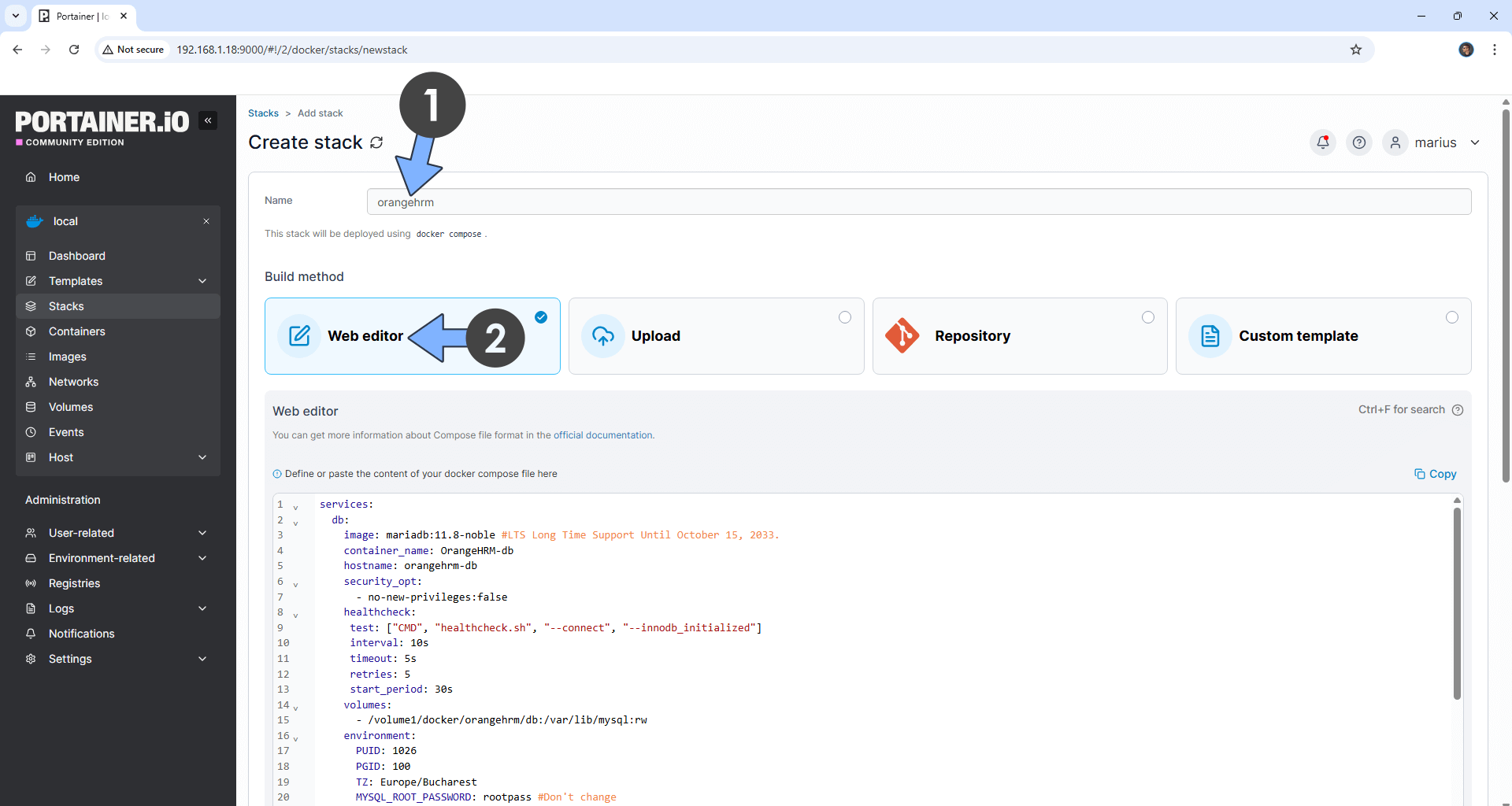
STEP 7
Scroll down on the page until you see a button named Deploy the stack. Click on it. Follow the instructions in the image below. The installation process can take up to a few minutes. It will depend on your Internet speed connection.
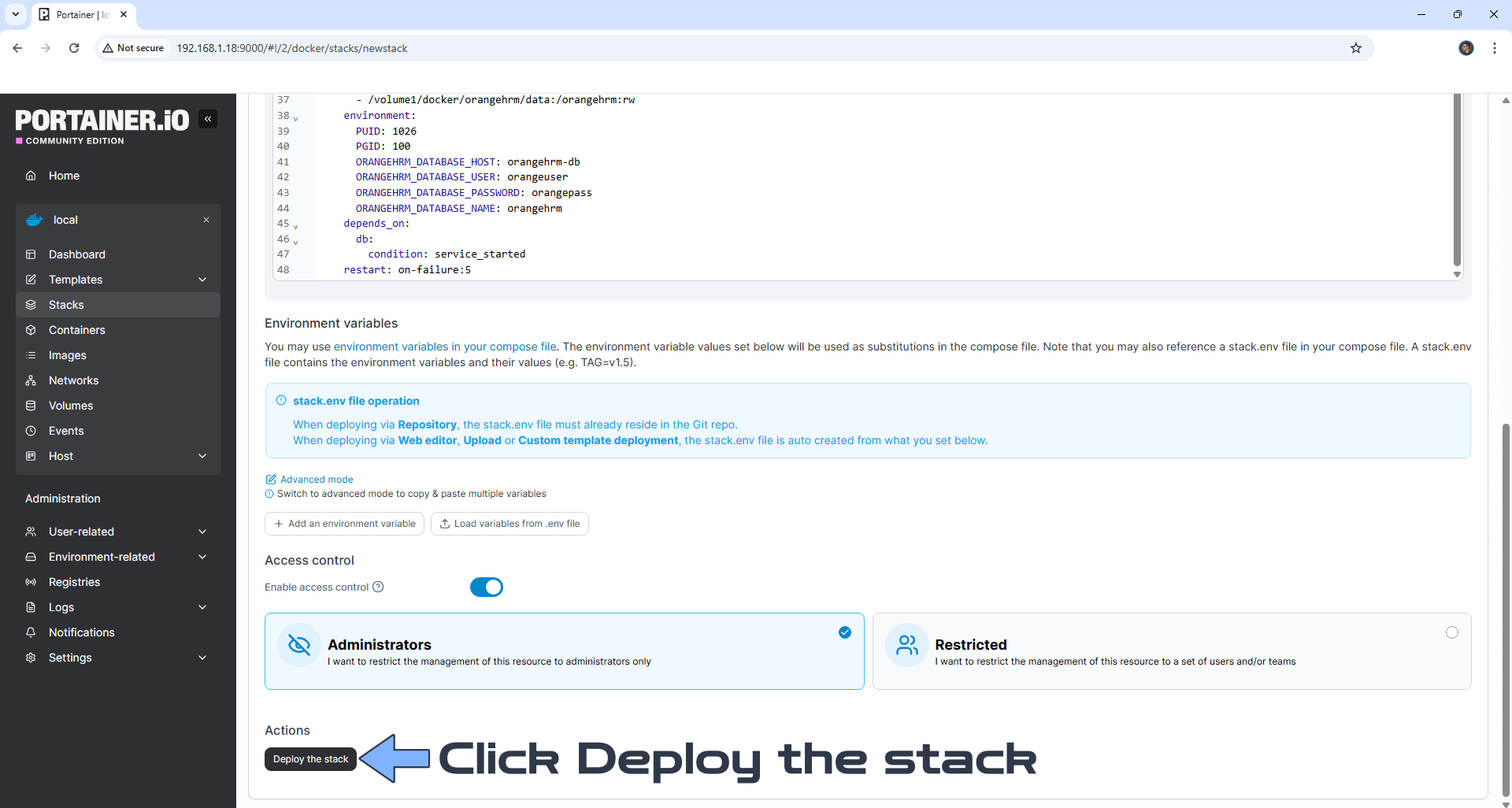
STEP 8
If everything goes right, you will see the following message at the top right of your screen: “Success Stack successfully deployed“.

STEP 9
🟢Please Support My work by Making a Donation. Almost 99,9% of the people that install something using my guides forget to support my work, or just ignore STEP 1. I’ve been very honest about this aspect of my work since the beginning: I don’t run any ADS, I don’t require subscriptions, paid or otherwise, I don’t collect IPs, emails, and I don’t have any referral links from Amazon or other merchants. I also don’t have any POP-UPs or COOKIES. I have repeatedly been told over the years how much I have contributed to the community. It’s something I love doing and have been honest about my passion since the beginning. But I also Need The Community to Support me Back to be able to continue doing this work.
STEP 10
Open your browser and type in http://Synology-ip-address:8797 Select Fresh Installation then click Next. Follow the instructions in the image below.
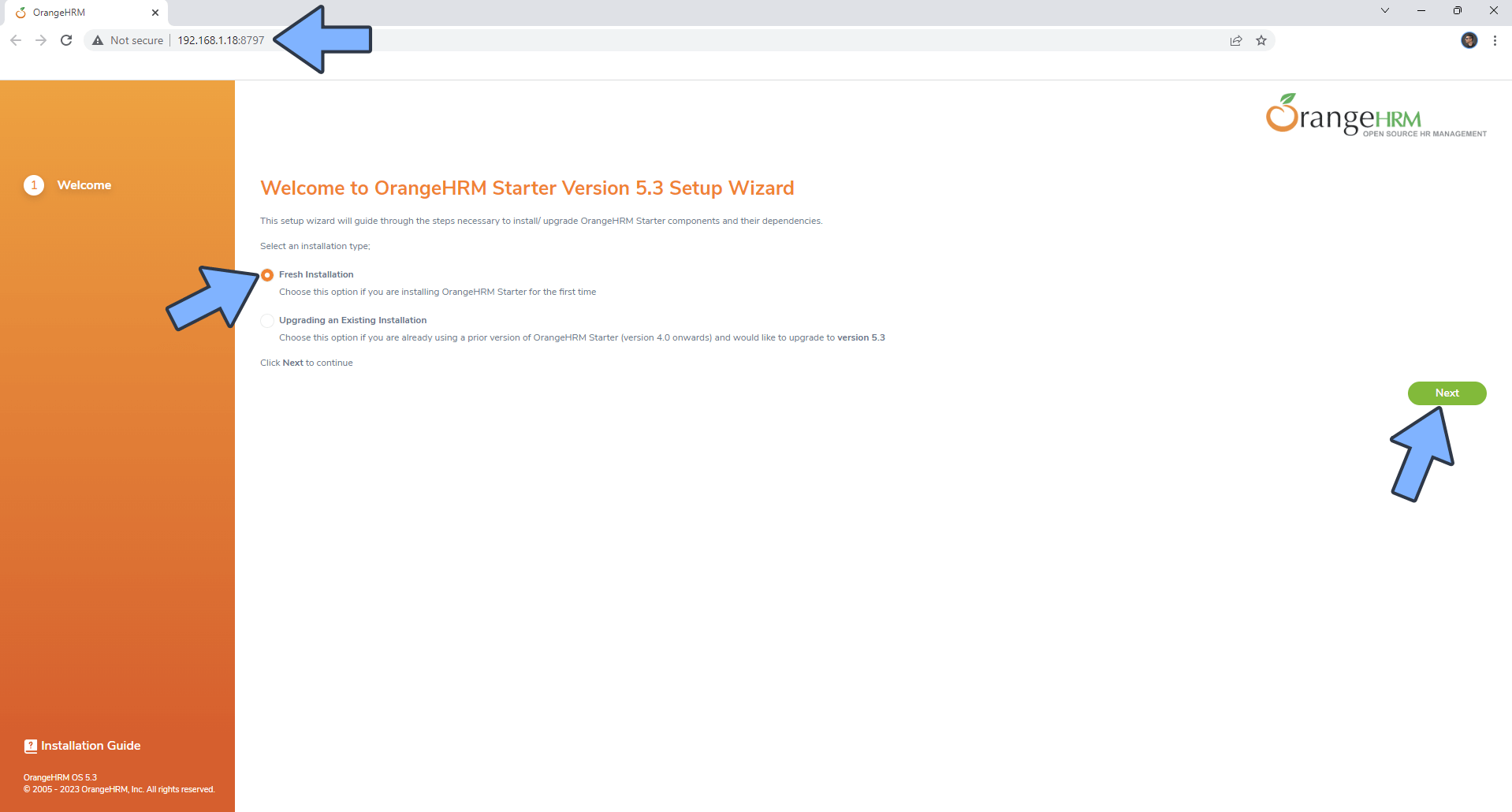
STEP 11
Check I accept the terms in the License Agreement. Click Next. Follow the instructions in the image below.
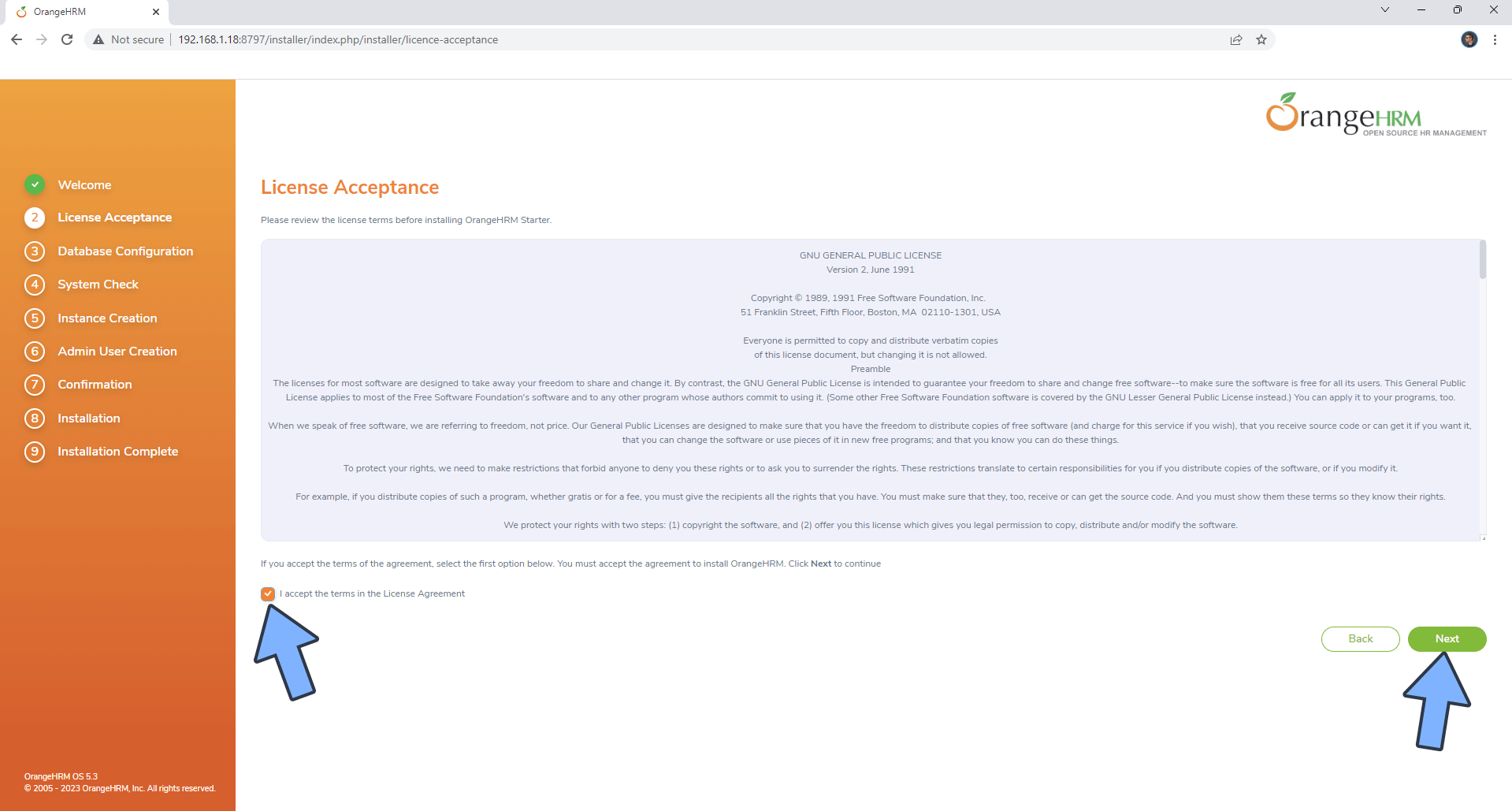
STEP 12
Select “Existing Empty Database” then add the following parameters. After that, click Next. Follow the instructions in the image below.
Database Host Name: orangehrm-db
Database Host Port: 3306
Database Name: orangehrm
OrangeHRM Database Username: orangeuser
OrangeHRM Database Password: orangepass
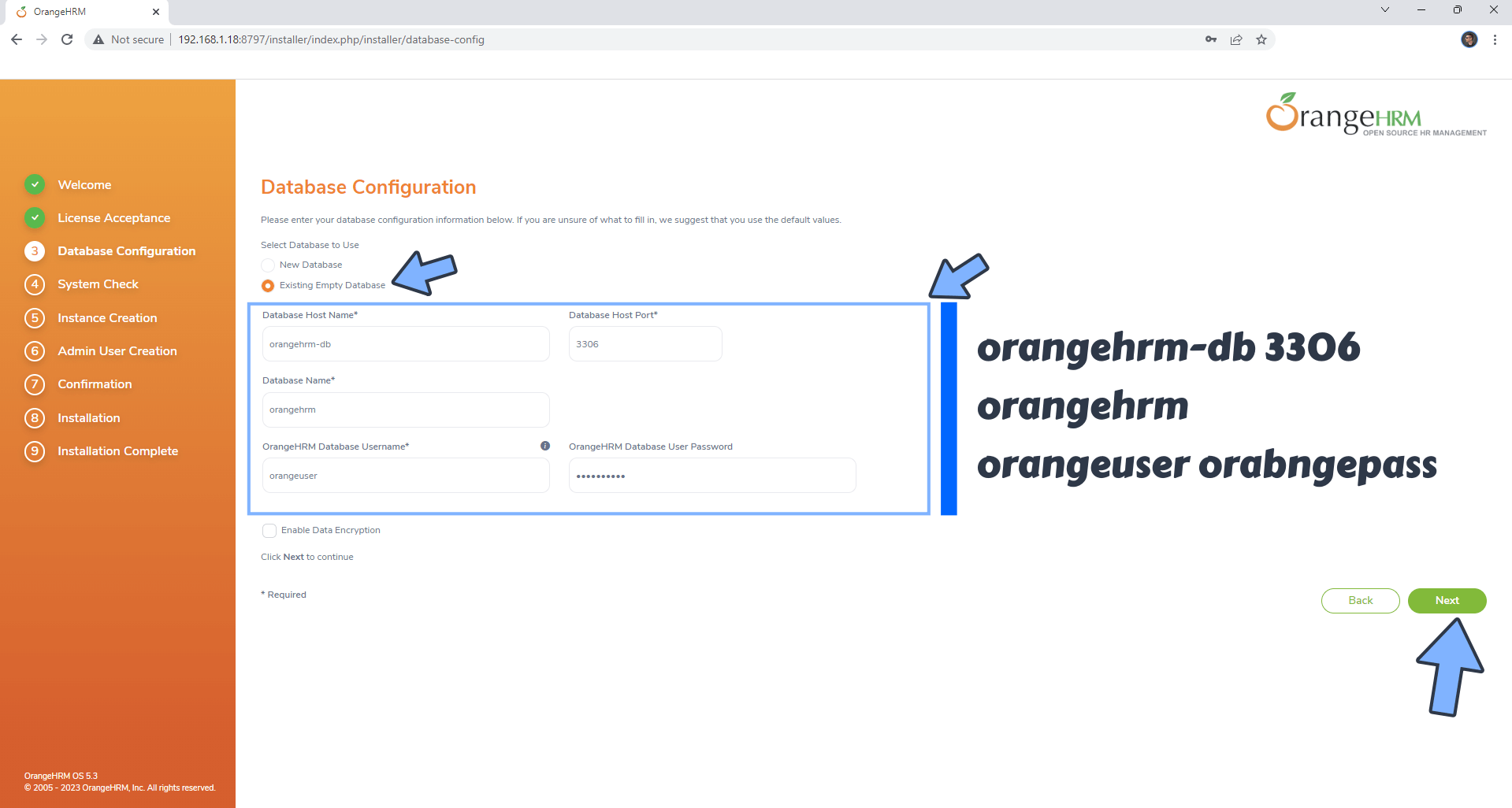
STEP 13
Click Next. Follow the instructions in the image below.
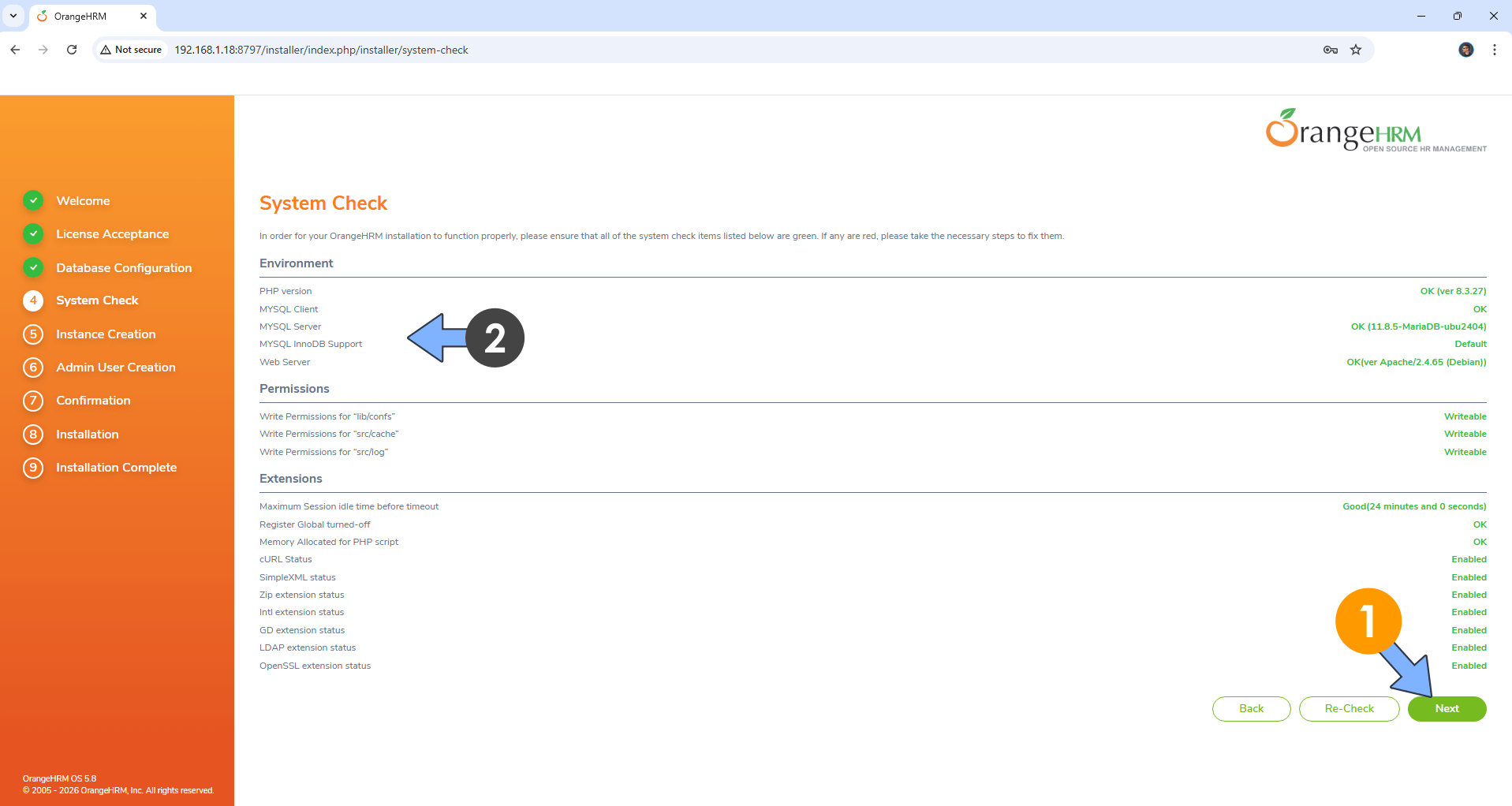
STEP 14
Add your own organization details then click Next. Follow the instructions in the image below.
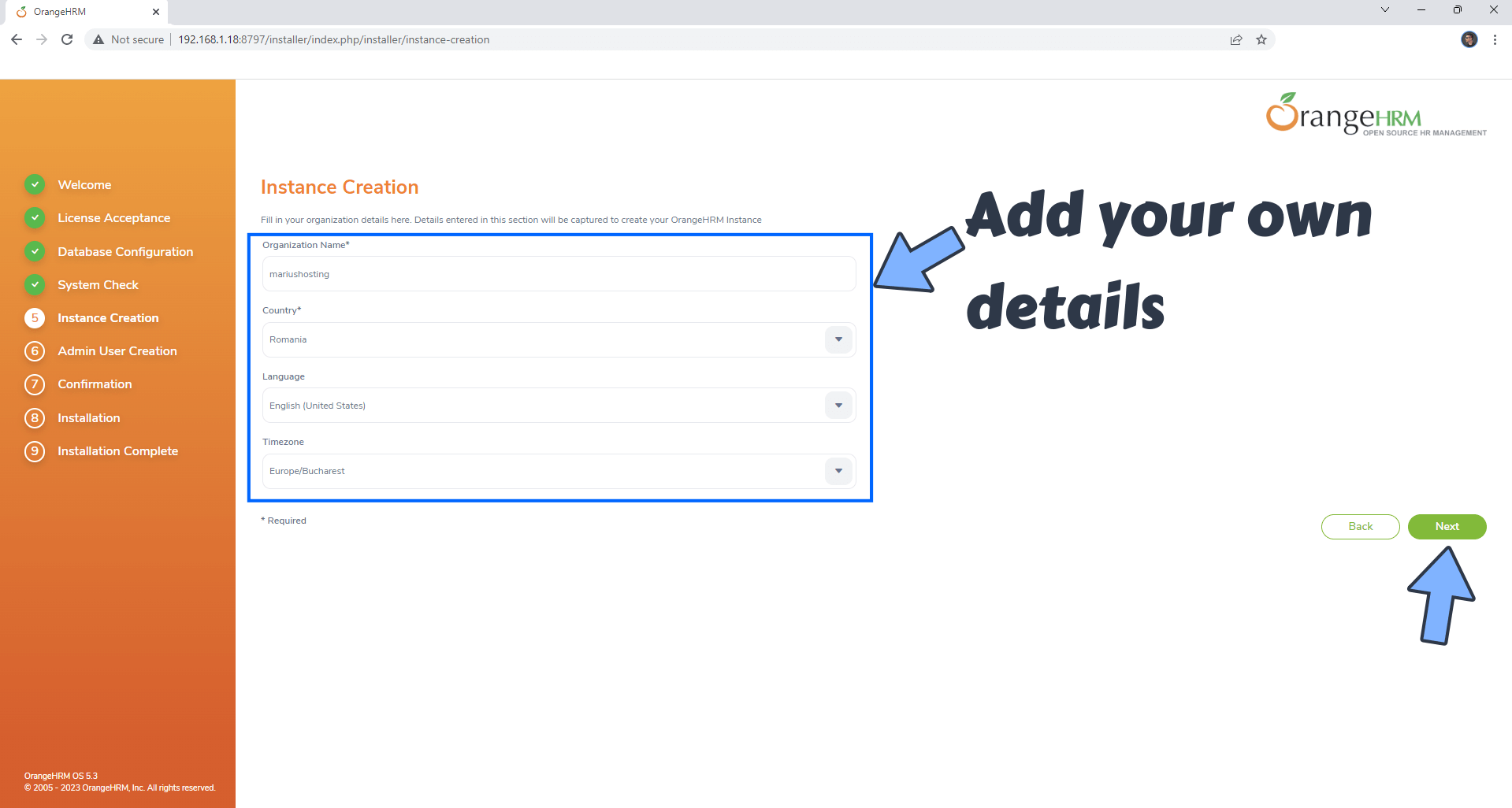
STEP 15
Add your own Admin details then click Next. Follow the instructions in the image below.
Note: You will need the Username and Password later at STEP 19. Write them down somewhere.
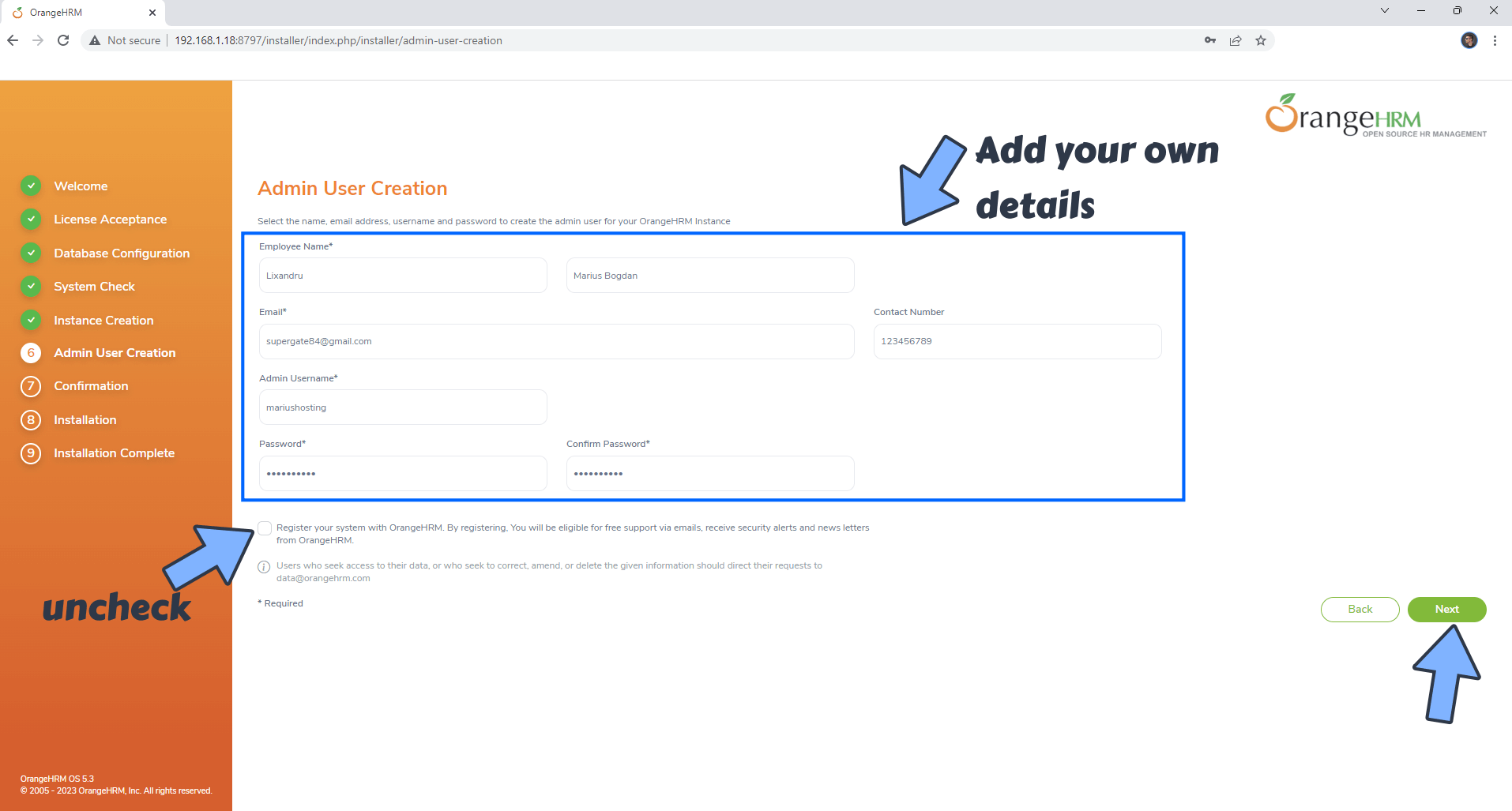
STEP 16
Click Install. Follow the instructions in the image below.
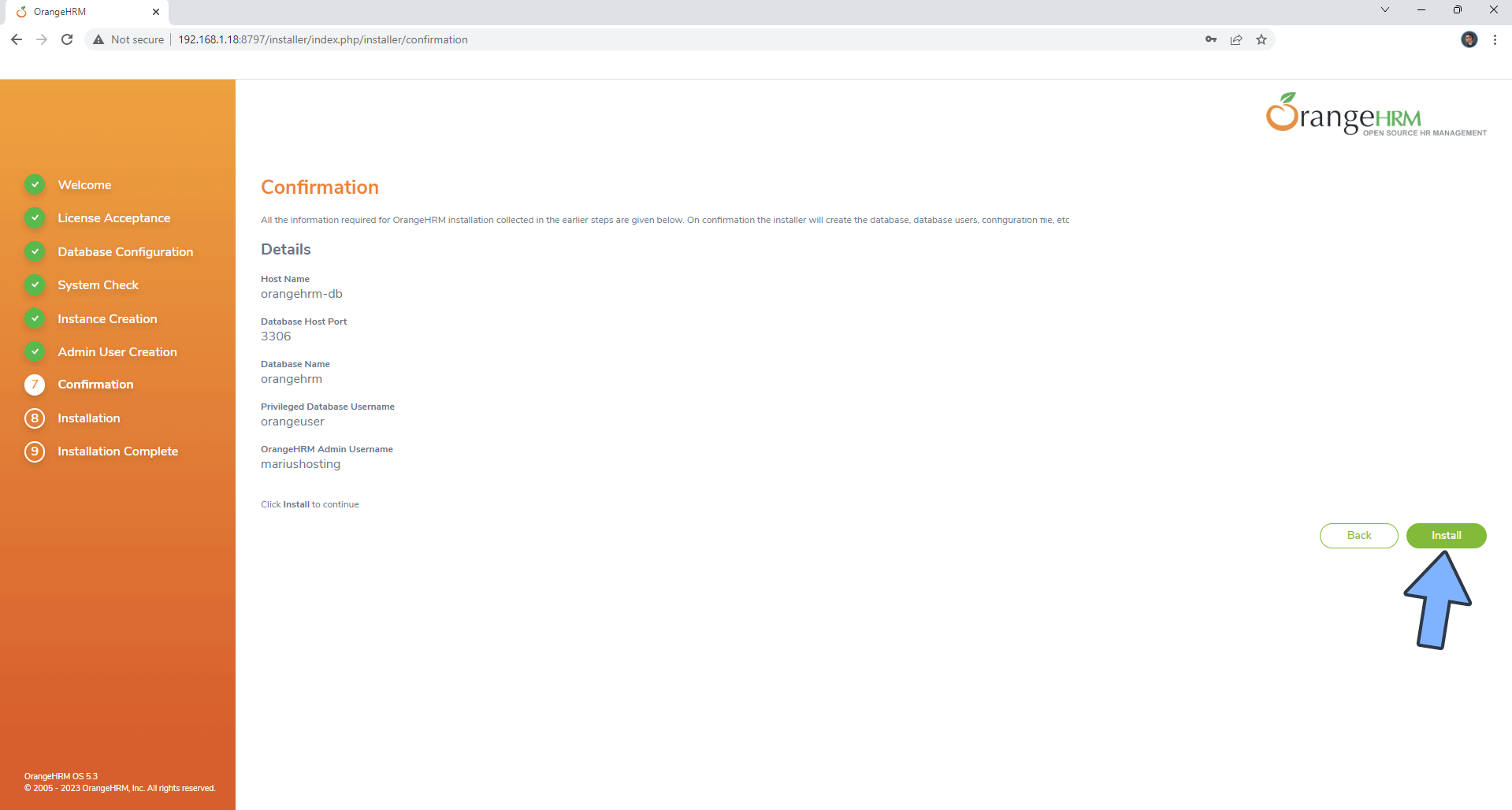
STEP 17
Make sure ALL the checkmarks are GREEN before you touch anything!
⚠️DO NOT refresh the page!
⚠️DO NOT click Next even if the progress bar reaches 100%!
Wait until absolutely every checkmark is GREEN, then click Next.
⚠️The process can last up to 10 minutes so be patient.
Note: At first, the progress bar will stop at 99%. Wait a few minutes. In the second phase, the progress bar will reach 100%, but not all the checkmarks will be green. Wait some more without touching anything at all. As soon as all the checkmarks are green, click Next.
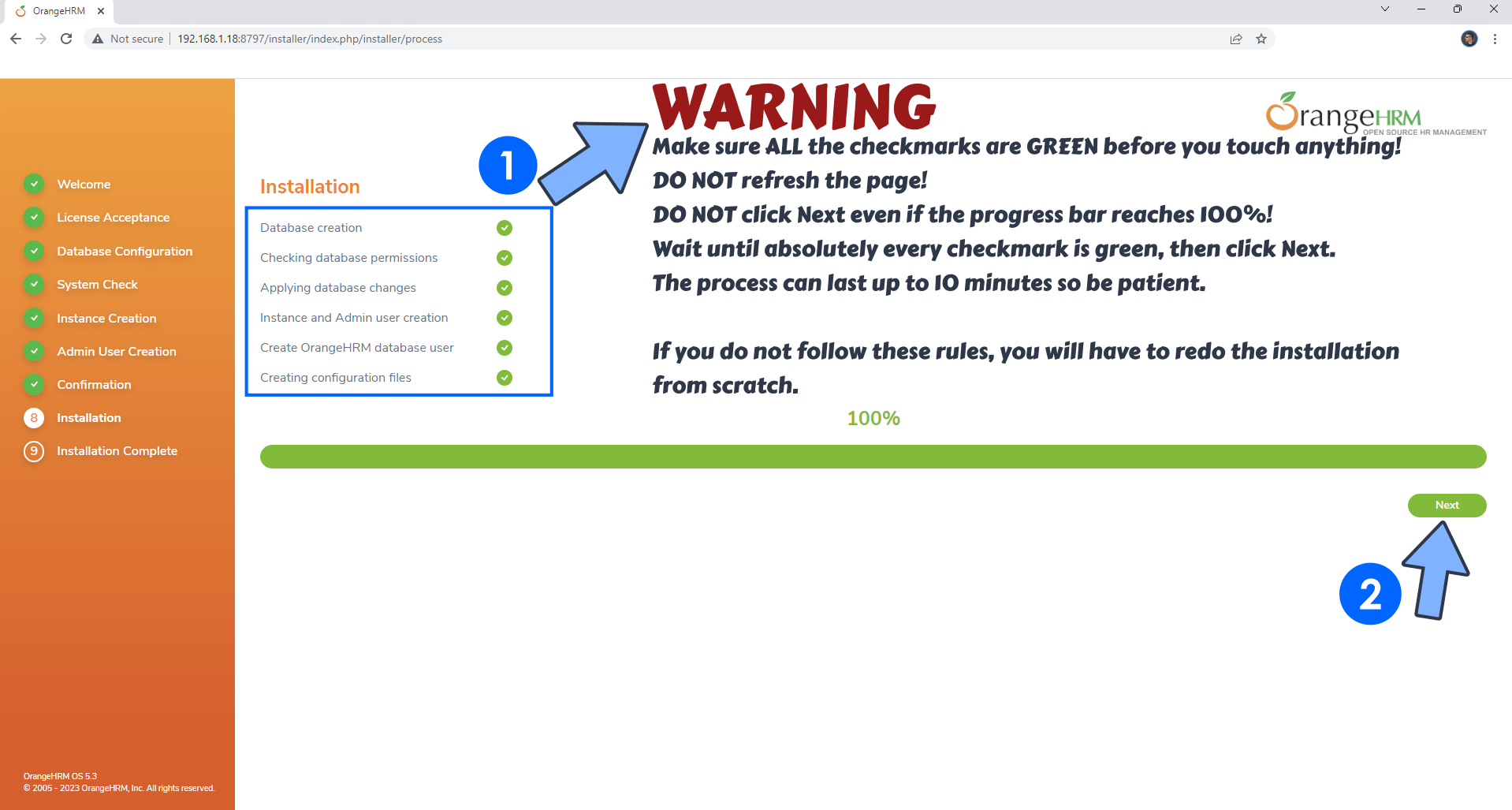
STEP 18
Click Launch OrangeHRM. Follow the instructions in the image below.
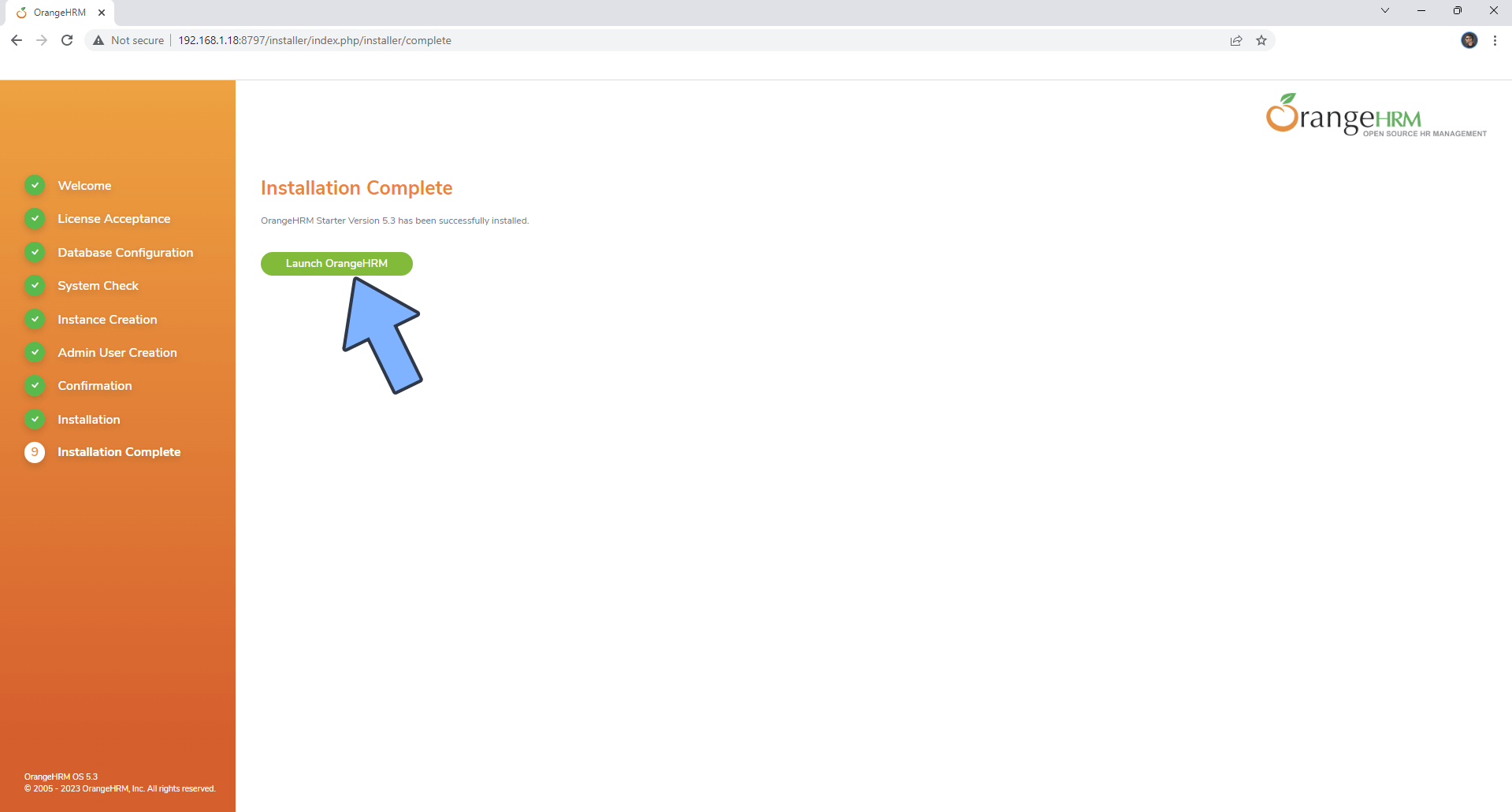
STEP 19
Type in your own Username and Password that you have previously created at STEP 15. Follow the instructions in the image below.
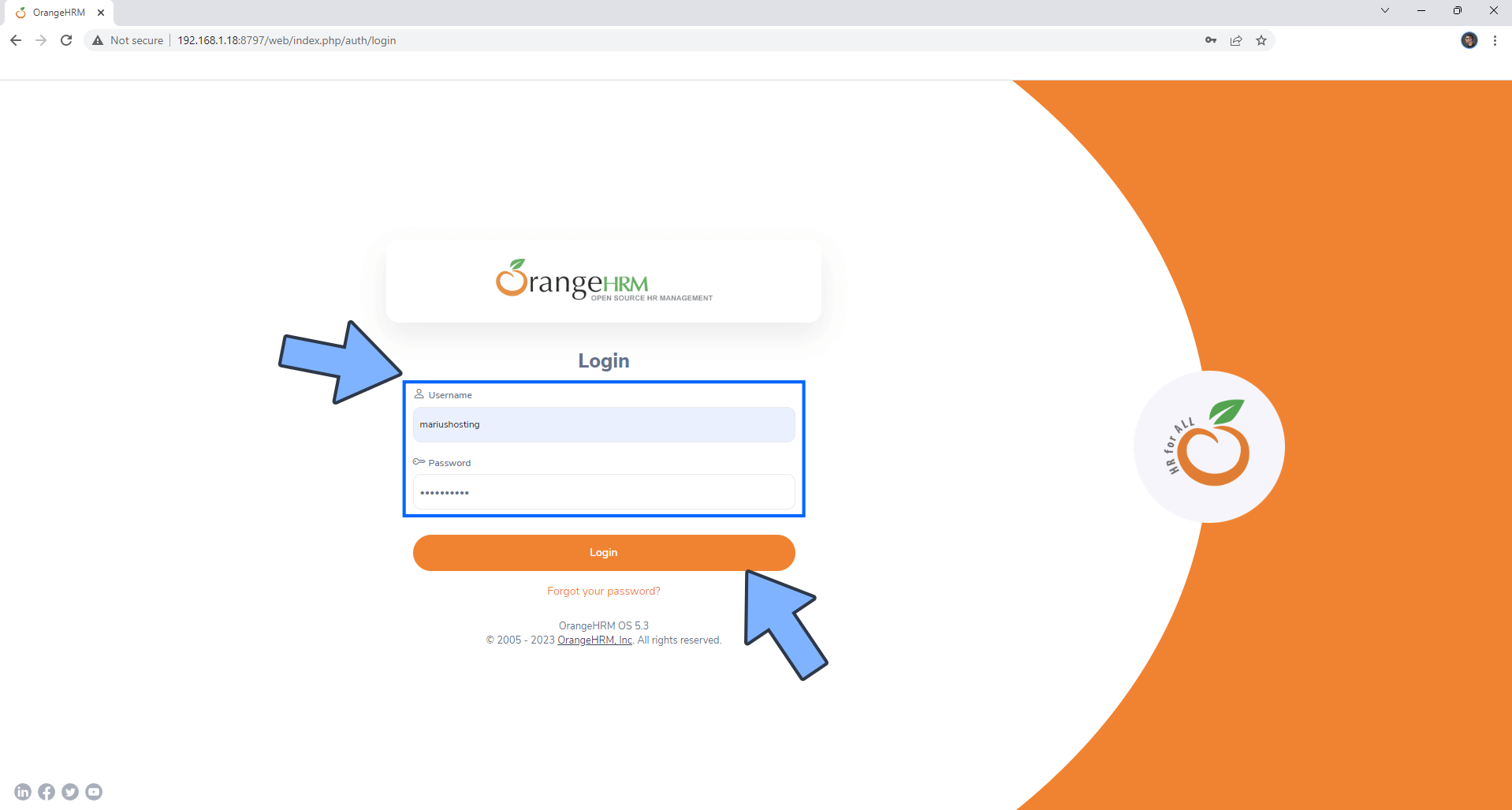
STEP 20
Your OrangeHRM Dashboard at a glance!
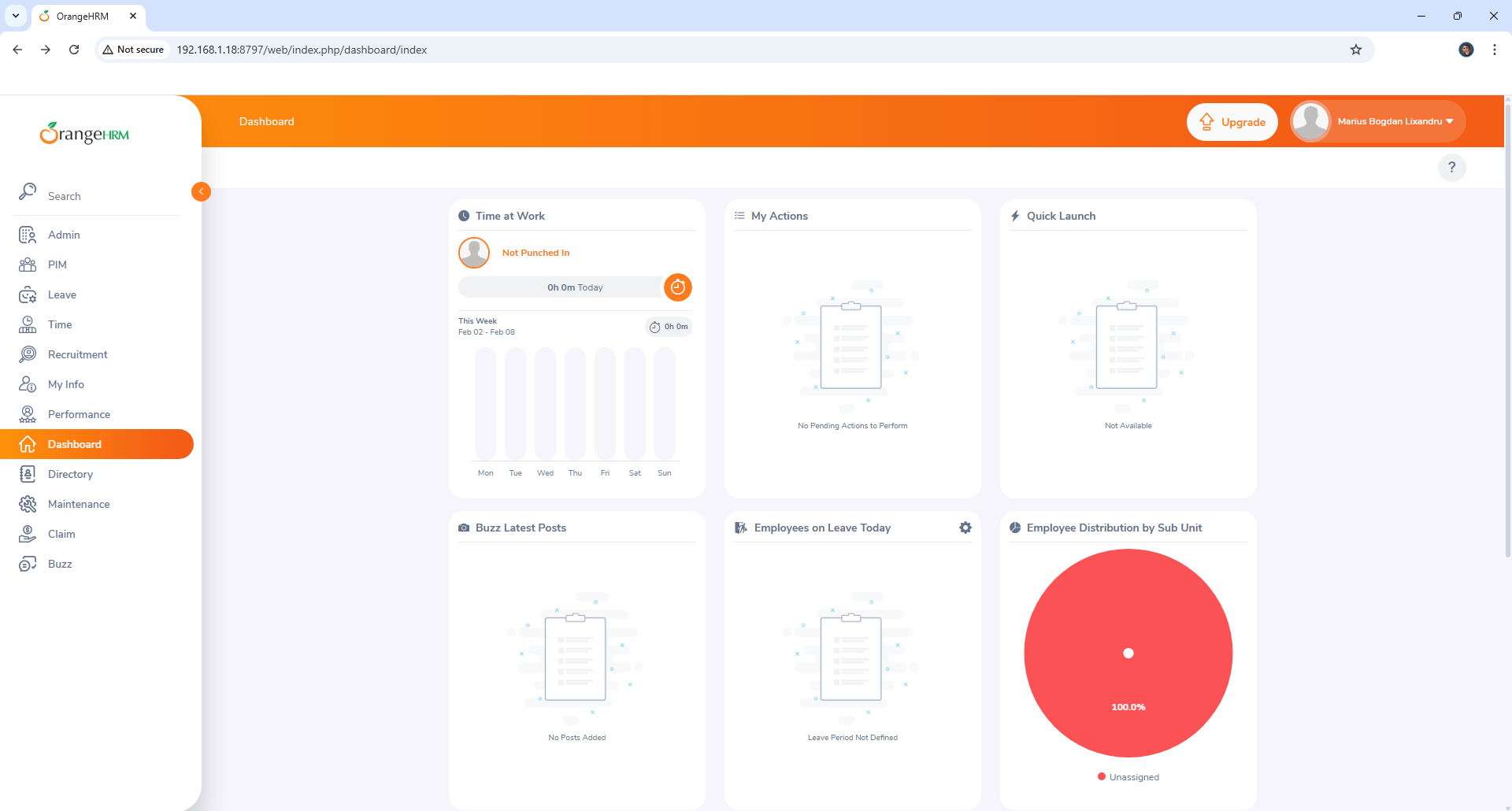
Enjoy OrangeHRM!
If you encounter issues by using this container, make sure to check out the Common Docker issues article.
Note: If you want to run the OrangeHRM container over HTTPS, check out my article How to Run Docker Containers Over HTTPS. In order to make OrangeHRM work via HTTPS, it’s mandatory to activate WebSocket. ⚠️Warning: The OrangeHRM guide was not launched in HTTPS from the beginning because the initial database creation works only in http/localhost. Once you have installed it in localhost, you can Reverse Proxy OrangeHRM without any issues.
Note: Can I run Docker on my Synology NAS? See the supported models.
Note: How to Back Up Docker Containers on your Synology NAS.
Note: Find out how to update the OrangeHRM container with the latest image.
Note: How to Free Disk Space on Your NAS if You Run Docker.
Note: Instead of the synology.me DDNS you can also use your own domain name.
Note: How to Schedule Start & Stop For Docker Containers.
Note: How to Activate Email Notifications.
Note: How to Add Access Control Profile on Your NAS.
Note: How to Change Docker Containers Restart Policy.
Note: How to Use Docker Containers With VPN.
Note: Convert Docker Run Into Docker Compose.
Note: How to Clean Docker.
Note: How to Clean Docker Automatically.
Note: Best Practices When Using Docker and DDNS.
Note: Some Docker Containers Need WebSocket.
Note: Find out the Best NAS Models For Docker.
Note: Activate Gmail SMTP For Docker Containers.
This post was updated on Sunday / February 8th, 2026 at 4:11 PM
